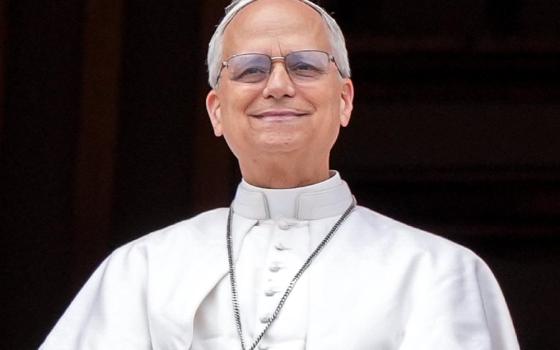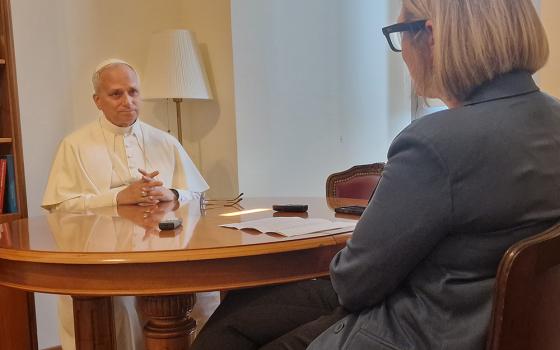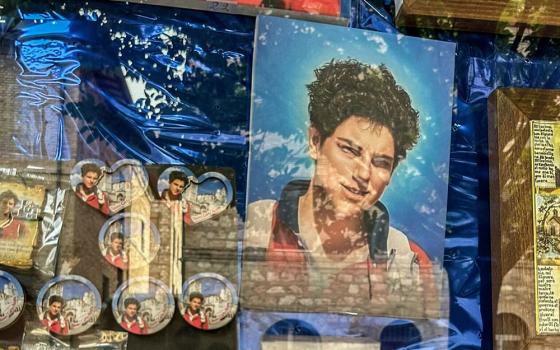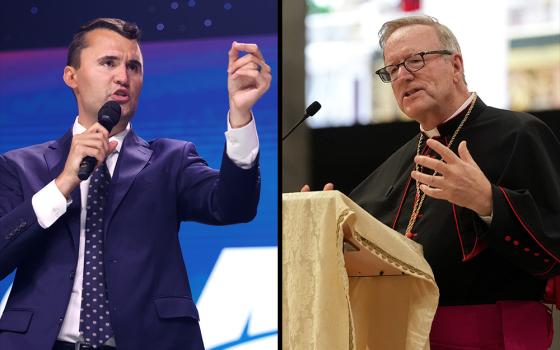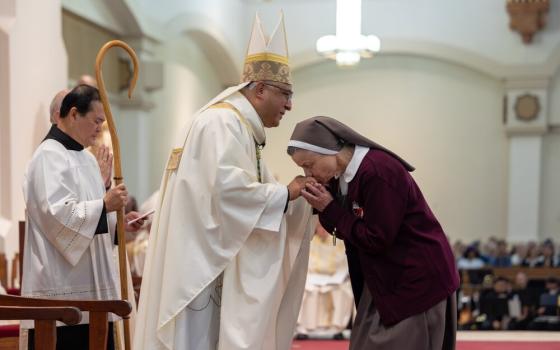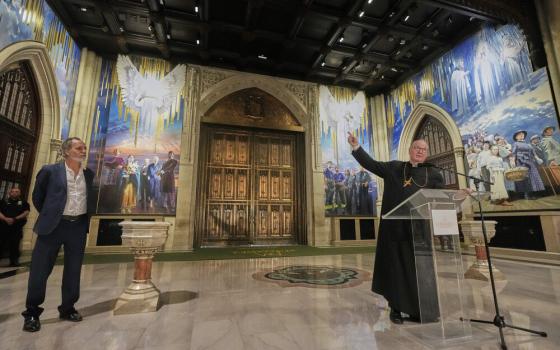Pope Leo XIV waves to visitors as he arrives in the Paul VI Audience Hall at the Vatican for his weekly general audience Aug. 13. Time magazine has named it to its "Time 100 AI" list for 2025, recognizing him as one of the world's top "thinkers" shaping how humanity confronts artificial intelligence. (CNS/Lola Gomez)
Pope Leo XIV has been named to Time magazine's "Time 100 AI" list for 2025, recognized as one of the world's top "thinkers" shaping how humanity confronts artificial intelligence.
Time magazine said Leo has chosen a name "in part to meet a revolution: that of AI." The list includes "leaders," "innovators," "shapers." Leo has been listed in the "thinkers" category
"His name choice is a tribute to Leo XIII, who served during the Industrial Revolution at the close of the 19th century, and railed against the new machine-driven economic systems converting workers into commodities," Time wrote, presenting Pope Leo as part of the list.
The list is an "annual look at the most influential people in artificial intelligence," Time said. It was launched in 2023, "in the wake of OpenAI's release of ChatGPT, the moment many became aware of AI's potential to compete with and exceed the capabilities of humans." The aim of the list is "to show how the direction AI travels will be determined not by machines but by people — innovators, advocates, artists, and everyone with a stake in the future of this technology."
If Leo continues to marshal the world's Catholics against AI's alienating potential, Time said, "Silicon Valley faces a formidable — and unexpected — spiritual counterweight."
"Upon assuming the papacy in May, Leo XIV told the world that as artificial intelligence ushered in a 'new industrial revolution,' the technology would require the 'defense of human dignity, justice and labor.' "
Time underlined the influence and magnitude of the institution Pope Leo leads, saying, "The Catholic Church comprises 1.4 billion believers; were it a nation, the church would be the world's third-largest." The magazine described the pontiff as someone who, in terms of AI, is "already making good on his vow."
The magazine said that when the Vatican hosted a convening in June on AI, ethics and corporate governance, Leo XIV's keynote speech underlined AI's potential as a force for good, particularly in health care and scientific discovery. But AI "raises troubling questions on its possible repercussions on humanity's openness to truth and beauty, on our distinctive ability to grasp and process reality," Leo added.
Time underlined that Pope Leo "warned that the technology could be misused" for "selfish gain at the expense of others, or worse, to foment conflict and aggression."
The list, published Aug. 29, includes tech CEOs, lawmakers, researchers and artists — those who create AI engines, those who teach how to use them and research and those who flag about its consequences for humanity.
Advertisement
Bishop Paul Tighe, a top official at the Vatican's Dicastery for Culture and Education, speaking in Dublin Aug. 23, said that AI's hidden environmental costs, impact on jobs and broader social risks can't be overlooked.
According to Tighe, leader of the Archdiocese of Dublin since 1983, AI and the social issues that it gives rise to will be a priority for Pope Leo XIV.
"He has very clearly put it at the top of the agenda in terms of his choice of name and the link with Rerum Novarum, and he explicitly said that reading the signs of the times this is something that we need to engage with," Tighe said.
Under Pope Francis, Time said, "the Vatican had pushed for a binding international treaty on artificial intelligence, sending the world's tech CEOs into a defensive crouch."
Tighe confirmed that the dialogue with tech companies has been "intensifying" under Leo, and that "an element of trust has emerged which means that people know we are trying to search together for the best outcomes and for the best possibilities. In that context, the trust itself permits a more open dialogue."
There is "still a commitment and a desire to have that conversation," which has involved Vatican departments such as the Pontifical Academy for Life, the Pontifical Academy of Social Sciences, and the Dicastery for Culture and Education, Tighe said.
